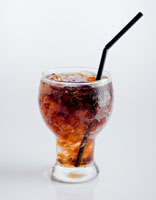Marketing & Media trends
Industry trends
BizTrends Sponsors
Trending



 Kaizer Chiefs vs Sunday World: Press Ombud rules against headlineOmbud Watcher Law
Kaizer Chiefs vs Sunday World: Press Ombud rules against headlineOmbud Watcher Law At least one fatality in George construction site collapseBhargav Acharya and Tannur Anders
At least one fatality in George construction site collapseBhargav Acharya and Tannur Anders
SodaStream global comeback
SodaStream's South African head, Guy Rogers, says the South African division of the company also benefited from the growth that came with the backing of investors after SodaStream's public listing on the Nasdaq in November last year.
There are no plans to list the wholly owned subsidiary of the Israel-based company on the JSE.
SodaStream's global business has doubled since its listing, with the US$20-a-share initial offering raising more than $100m. The share price has risen to $43.
SodaStream's 2007 global relaunch, which included the total redesign of its machines, played on their earth-friendly qualities such as the reusability of their bottles and gas canisters. In SA, the campaign has been broadened to emphasise its cost-saving qualities too, Rogers says.
"For us in SA it is the smart alternative to bottled (carbonated) drinks on the green front, but also as value-for-money." A litre of SodaStream soda water costs about R2, while the bottled version costs between R8 and R9/l.
SodaStream has an active user base of 300000 households in SA and is available in more than 90% of retail food outlets. Rogers says the company plans to increase its brand footprint through top-end department stores, kitchenware outlets, appliance specialists and "green" stores.
Mixing market capture with corporate social responsibility, the company has also entered into partnerships with 40 Soweto spaza shops and 15 schools. The schools raise extra funds using the SodaStream system to sell the cooldrinks to pupils, and giving the company space to teach primary school pupils about the environment.
The spaza shops are gathering SodaStream new customers. Because non-delivery is "a major problem" for most spaza shops, SodaStream delivers the gas and syrups to the shops, meaning the spaza owner needs only a SodaStream machine and a selection of flavours and recyclable cups.
SodaStream has also improved its mixes. They now contain a third of the sugar of an average fizzy drink, with a combination of the sweeteners aspartame and xylitol adding sweetness. They do not contain artificial flavourants or colourants and only European Union-approved food additives are used, in line with local requirements, Rogers says.
The fully imported machines do not use electricity or batteries. SodaStream sells 35000 to 45000 a year and saw a healthy 20% growth in 2009, with a slip to "single-digit" growth last year. Rogers hopes this year will garner growth of 9%-10%.
SodaStream aims to minimise the "huge eco-footprint" caused by the manufacture, transport and waste of plastic bottles.
SA recycled 38% (almost 40000 tons) of its used PET (polyethylene terephthalate) bottles last year, according to PET Plastic Recycling SA.
Source: Business Day
Source: I-Net Bridge

For more than two decades, I-Net Bridge has been one of South Africa’s preferred electronic providers of innovative solutions, data of the highest calibre, reliable platforms and excellent supporting systems. Our products include workstations, web applications and data feeds packaged with in-depth news and powerful analytical tools empowering clients to make meaningful decisions.
We pride ourselves on our wide variety of in-house skills, encompassing multiple platforms and applications. These skills enable us to not only function as a first class facility, but also design, implement and support all our client needs at a level that confirms I-Net Bridge a leader in its field.
Go to: http://www.inet.co.za



